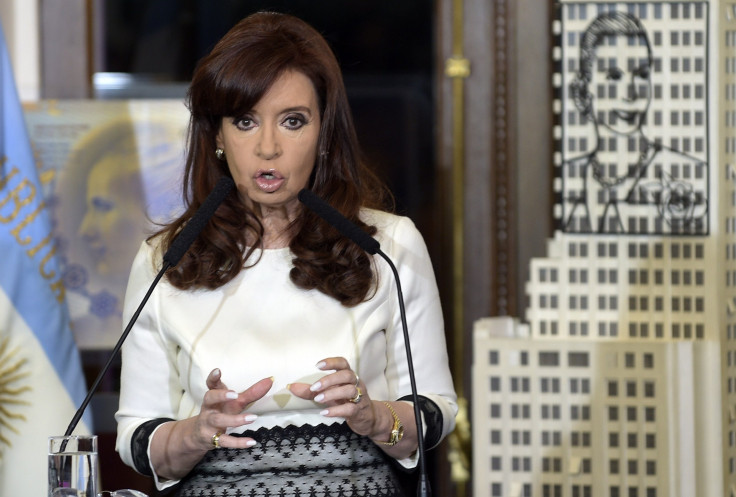Argentina Default: President Fernandez Rails Against Holdout Creditors

(Reuters) - Argentina's President Cristina Fernandez took toFacebook on Saturday to rail against her country's holdout creditors, calling them greedy and bent on thwarting a solution in order to keep Argentina mired in debt.
Fernandez' post on the social network was her government's latest acrimonious attack on the bondholders she calls "vultures" following the collapse of debt talks this week that sent Argentine bond prices tumbling.
"The main thing with vulture funds is that they don't want a solution," Fernandez wrote on her Facebook page.
"Not just out of greed and avarice but also because of a political and geopolitical decision of wanting to indebt Argentina again, and to destroy, in any way possible, the restructuring of sovereign debt."
Argentina defaulted for the second time in 12 years on July 31 after losing a lengthy legal battle with hedge funds demanding full payment on debt they own that stems from the country's record $100 billion default in 2002.
Prospects for a private sector solution to the dispute worsened on Wednesday after holdout investors said they entertained no realistic offers from bankers for a chunk of the debt.
One of the leading holdout creditors, Aurelius Capital Management, said on Wednesday that there was "no realistic prospect" of a private deal and that Argentina's economy would suffer because of it.
Fernandez called Aurelius' comments "threatening and hurtful to national sovereignty."
"This is a threat against all Argentines," she said.
Fernandez' defiant stance on the funds has won growing support among Argentines, opinion polls show.
Many Argentines side with their government against hedge funds that rejected the country's debt restructurings in 2005 and 2010 in which bond holders received less than 30 cents on the dollar.
(Reporting by Jorge Otaola; Editing by Eric Walsh)
© Copyright Thomson Reuters 2024. All rights reserved.





















